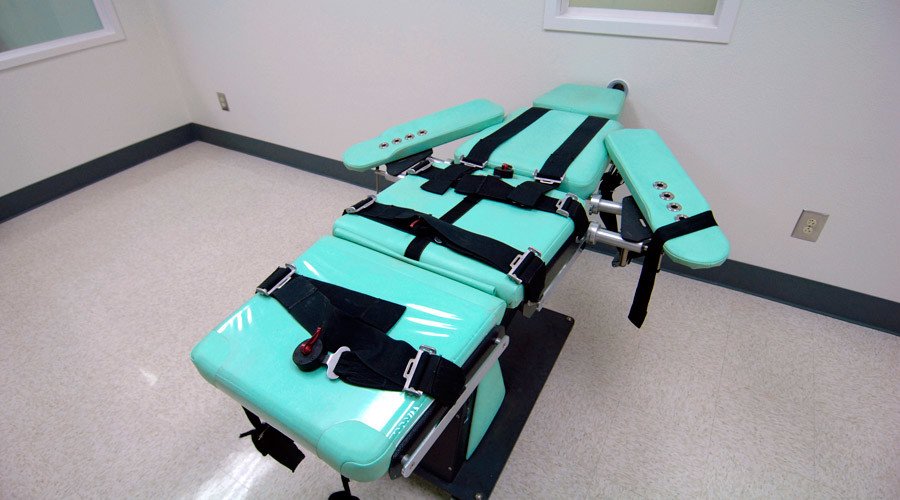Hijacked and Hitchhiked: America’s schizophrenic attitude to the death penalty

There’s no room for error in the capital punishment biz. You’d think that alone would inspire the country’s distaste for it. Guess again.
I’ve asked my talk radio audiences throughout the years a very simple question: How many people would you allow to be erroneously killed via state-sponsored murder (capital punishment) before you would demand either a moratorium or all-out abolition of the death penalty? Silly me. I thought for sure the answer would be a resounding ZERO! None. Nada. Just the way the question’s phrased, surely gives away the answer. Well, to my shock and horror the answers have varied from an inexplicable number (Four. Four?!) to no number or amount was too great.
The death penalty was critical and necessary and like they say when you make an omelet, you have to break a few eggs. Mistakes happen. No system’s perfect. You win some, you lose some. The appellate process is enough to weed out the mistakes and if some slip through the cracks, those are the breaks. Apparently they weren’t in school for Blackstone’s admonition, “For the law holds, that it is better that ten guilty persons escape, than that one innocent suffer.” Blackstone, they’d surely posit, was another lily-livered liberal.
And, remember, these were God-fearing reasonably good and kind and compassionate folks, usually, but when the subject comes to our American pastime, hard justice, they clung to the idea of the death penalty’s criticality with a tenacity that’s inexplicable.
I’m a lawyer by profession and I’ve been a prosecutor and I’ve seen firsthand what the system’s like. And if for no other reason than the inefficacy of the determination of guilt, the death process must be stopped. Now. It’s meted out haphazardly, it’s proved to be in no wise a deterrent and when it’s repealed murder rates don’t rise and when it’s added the don’t fall. You will ofttimes hear the quip that it is in fact a deterrent because the executed defendant will be unable to kill again.
Let’s talk methodology. The means of exacting the punishment have been barbaric and the current illusion of compassion, lethal injection, has suffered a spate of problems including administering the death cocktail in reverse order (resulting in the wide-awake condemned suffocating without the ability to utter a protest).
Let me remind the reader that the reason for lethal injection was intended primarily to spare the witnesses having to endure a more efficacious, though messy, means of administering final justice. An overdose of barbiturates would be far more humane (after all, it’s the method of choice for dispatching an ailing pet) as would the guillotine, which is problematic to everyone save the condemned.
There are a number of attendant problems associated with the American death penalty system that require review. First, let’s look at the caliber of trial counsel that’s usually afforded and accorded the defendant. In many jurisdictions court-appointed lawyers are provided who are paid by the county, state or local jurisdiction and in too many cases they’ve not the experience to handle the complexity of the ultimate criminal sanction. It’s not beyond the realm of possibility for a lawyer to be handed a case, a lawyer whose main criterion for selection is being friends with the judge. A lawyer who might have never tried a criminal case in his/her life, much less a capital case. In these matters it’s beyond critical to file the necessary pretrial motions and preserve the record for the inevitable appeal when the defendant will inevitably be found guilty and inevitably sentenced to death. If you’ve any question about this, just look at the frequency of ineffective assistance of counsel post-trial and post-conviction motions and appeals.

Then there’s the issue of investigatory costs. The state has unlimited resources, law enforcement personnel, investigators, forensics experts, name it, at its disposal. The amount allocated for pretrial investigation, not to mention the de minimis legal fees involved, is never enough. Just look what happens when an industrious court-appointed lawyer tries to secure additional funds for an experienced investigator or forensics expert to assist. Good luck. And I haven’t even mentioned the hurdles that are encountered when an already-convicted defendant tries to secure release or exoneration when newly-discovered evidence is acquired. But that’s for another discussion.
And then the issue of guilt itself. Contrary to popular belief, most capital cases don’t involve DNA or forensics but eyewitness testimony or the jailhouse snitch. The Judas who’ll say anything to anyone to avoid or minimize his or her own criminal fate. And keep in mind; it’s hardly rare that the defendant in question is not in possession of a lengthy and most significant criminal history. Defendants are often guilty, but not necessarily of the offense they’re charged with. Let me remind the reader that first degree murder is the charge that accompanies the death penalty: willful, wanton, malicious, premeditated murder with malice aforethought. Not second degree murder or heat of passion or depraved mind but murder one.
The issue of the imposition itself is complicated in its own right because of the factors that may not necessarily involve guilt per se but the frequency of certain demographics being sentenced. To most folks, it’s merely about being guilty. Ah, yes. Guilt. Too bad that the chances of Black-on-White murder receiving the jury’s recommendation of death are inordinately more likely than any other permutation.
In all of criminal law, the most difficult to explain is the notion of the insane being ineligible for guilt. Ineligible because they lack the capacity to form the requisite criminal intent to commit a particular specific intent crime. What does that mean? Mumbo jumbo to many who believe that criminal defendants all too often escape the necessary snare of justice. They feel that the actus reus, the physical act of the crime itself, is all that matters. Did this dirtbag shoot, stab, choke or otherwise kill the victim? If yes, case closed.

Next! Criminal intent, mens rea, capacity and/or mental wherewithal mean absolutely nothing. And to be fair, when a jury of ordinary citizens is exposed for the first time to the proverbial 8X10 glossies of the mostly mind-blowingly horrible murder scene imaginable, especially when involving a child, the last thing on their mind is mental capacity and culpability. They want justice, better yet; vengeance - and they want it now. And that’s completely understandable, if not unfortunate.
That’s why the death penalty must be abolished. There’s no room for error when a human life is involved, even when that human life took another. And it has nothing to do with whether anyone “deserves” it. Lock away and warehouse those convicted. I in no wise am arguing for the release of the dangerous. What I am advocating is sober reflection and a mature review of this barbaric system.
You can’t appeal an execution.
The statements, views and opinions expressed in this column are solely those of the author and do not necessarily represent those of RT.














